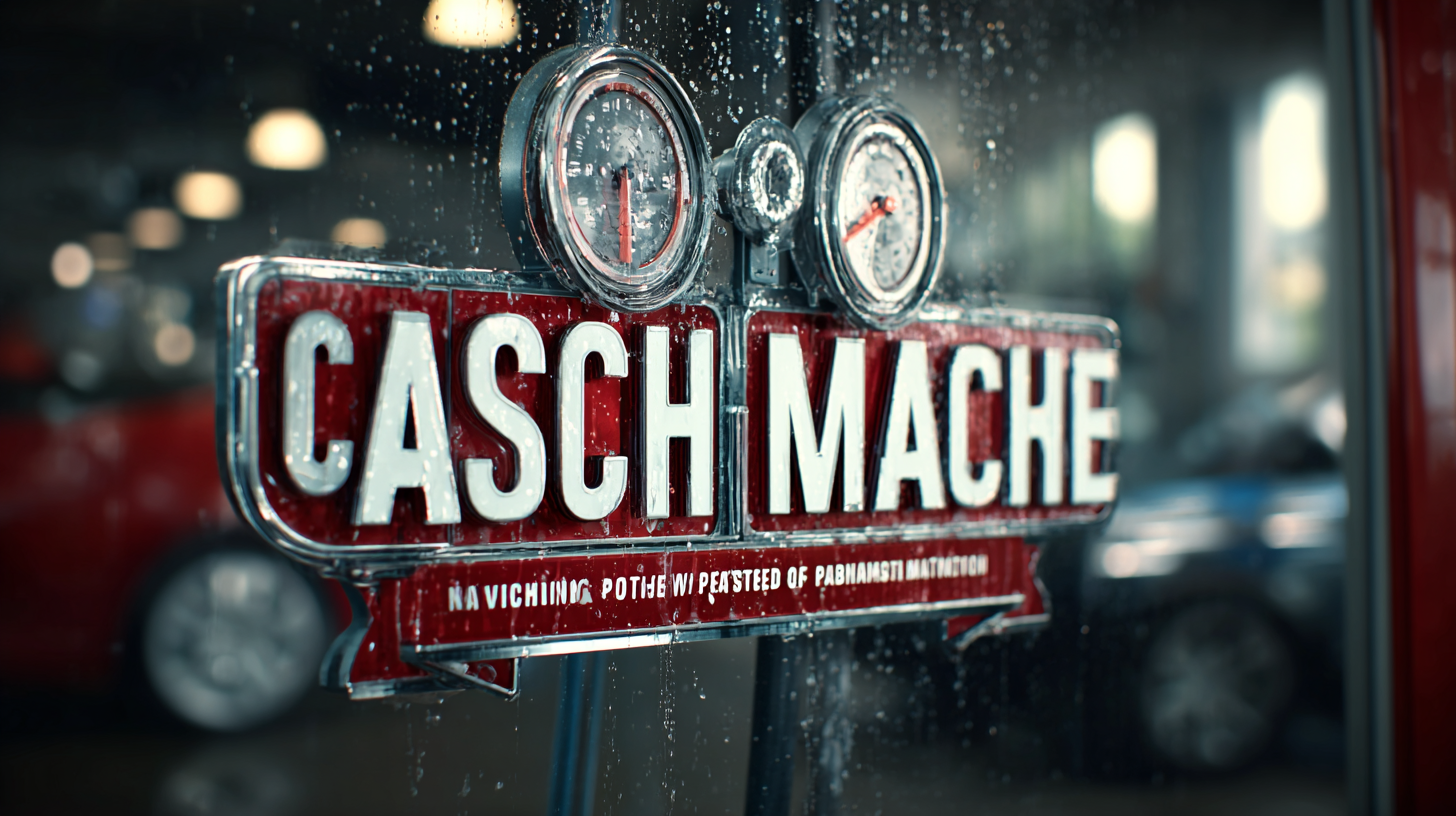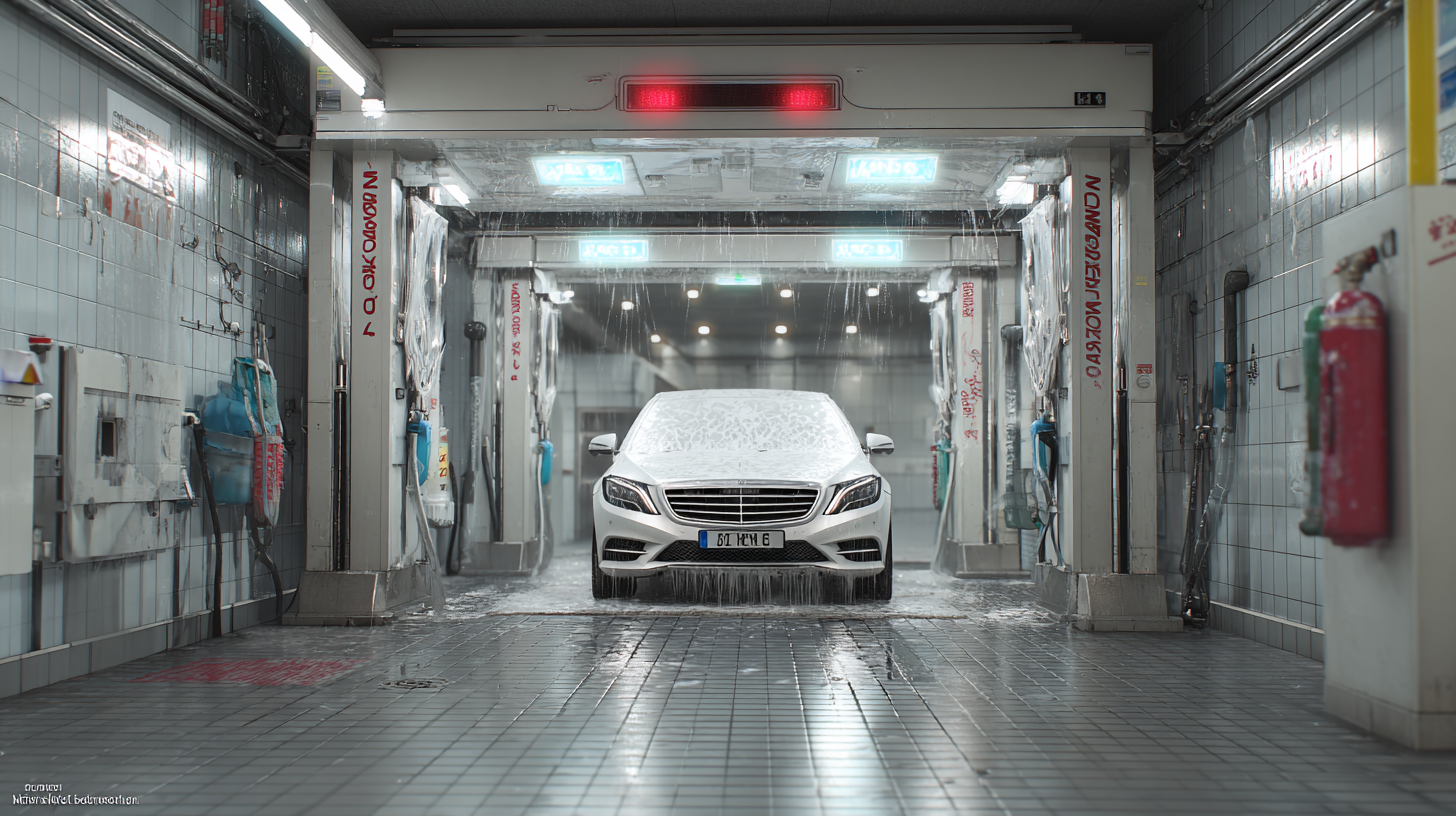Navigating Industry Standards and Challenges in the Best Car Wash Machine Production
In the rapidly evolving automotive service industry, the production of high-quality car wash machines has become a crucial focus for manufacturers striving to meet diverse market demands. With the increasing emphasis on efficiency, environmental sustainability, and customer satisfaction, understanding the various types of car wash machines available is essential for both producers and consumers. This blog will explore the characteristics and applicability of different alternatives in car wash machine production, highlighting the unique features that set each type apart. As we navigate through industry standards and the challenges that come with innovating washing technology, it becomes clear that selecting the right type of car wash machine can significantly impact operational success and service quality.

Whether it's touchless, automatic, or roll-over machines, each option offers distinct advantages suited to specific needs, making informed decisions imperative for anyone in the automotive care sector.
Understanding Key Industry Standards for Car Wash Machines
In the competitive landscape of car wash machine production, adhering to industry standards is crucial for manufacturers aiming to ensure product quality and customer satisfaction. Key industry standards encompass various aspects, including safety, performance efficiency, and environmental impact. Familiarizing oneself with these standards not only helps in compliance but also enhances the innovation potential of the machines produced.
Tip: Always stay updated with the latest revisions of relevant standards from organizations such as the International Standards Organization (ISO) and the American National Standards Institute (ANSI). Regular training for your engineering and design teams can also ensure that everyone is informed about compliance requirements.
Moreover, challenges such as evolving technologies and changing consumer expectations add complexity to the production process. Therefore, manufacturers must proactively seek feedback from users to adapt and innovate their machines.
Tip: Implement regular surveys and gather customer insights to address potential issues in your car wash machines. This direct feedback loop can drive improvements and align your products closely with market demands and regulatory changes.
Navigating Industry Standards and Challenges in the Best Car Wash Machine Production
| Key Industry Standards | Description | Challenges | Compliance Importance |
|---|---|---|---|
| ISO 14001 | Environmental management systems | Certification costs and resource allocation | High, due to environmental regulations |
| UL Certification | Safety standards for electrical equipment | Meeting stringent safety requirements | Critical for user safety and liability |
| CE Marking | Indicates conformity with health/safety standards in the EU | Adapting to various international markets | Essential for market access in Europe |
| ASTM Standards | Evaluating the performance of car wash equipment | Keeping up with testing standards | Important for quality assurance |
| EPA Regulations | Regulations for wastewater management | Navigating local environmental laws | Crucial for regulatory compliance |
Identifying Common Challenges in Car Wash Machine Production
The production of car wash machines faces several common challenges that manufacturers must navigate to maintain quality and efficiency. One major hurdle is the integration of advanced technologies, such as reverse osmosis (RO) systems, which ensure that vehicles receive a final rinse of pure, mineral-free water. This not only enhances the cleanliness of the finish but also addresses environmental concerns by reducing water waste. However, adapting production lines to incorporate these systems can be complex, requiring careful planning and investment in training staff to oversee new processes.
Another prominent challenge stems from the rapidly evolving designs of vehicles. As manufacturers innovate with new materials and finishes, car wash machine producers must ensure their equipment is compatible with these changes. Continuous training and coaching for employees become imperative in this dynamic environment, allowing them to stay abreast of the latest developments and best practices in vehicle care. Investing in employee education not only boosts productivity but also fosters a culture of adaptability, which is vital in facing the industry's ongoing transformations.

Essential Features to Include for Optimal Performance
In the competitive landscape of car wash machine production, integrating essential features for optimal performance is paramount. According to a recent report by IBISWorld, the car wash industry is projected to reach $14 billion in revenue by 2025, underscoring the increasing demand for high-efficiency washing solutions. Producers must focus on incorporating advanced technology, such as touchless wash systems and eco-friendly cleaning agents, which not only enhance cleaning efficacy but also contribute to sustainability efforts.
Moreover, innovative features like automated payment systems and user-friendly interfaces are crucial in attracting a tech-savvy customer base. A study by MarketsandMarkets indicates that the automation of car wash services can improve operational efficiency by up to 30%. Furthermore, implementing features that allow for real-time monitoring and diagnostics ensures that machines operate at peak performance, reducing downtime and maintenance costs. These strategic enhancements not only fulfill industry standards but also elevate the overall customer experience, resulting in increased loyalty and profitability.
Tips for Ensuring Compliance with Safety Regulations
Ensuring compliance with safety regulations is paramount in the car wash machine production industry. According to a report from IBISWorld, the car wash equipment manufacturing sector has seen a growth rate of 3.6% annually over the past five years, emphasizing the necessity for these businesses to adhere to stringent safety protocols to sustain growth and consumer trust. Manufacturers must implement safety measures that conform to both national and international standards, such as those established by the American National Standards Institute (ANSI) and the International Organization for Standardization (ISO).
Moreover, keeping pace with evolving regulations is essential. The Occupational Safety and Health Administration (OSHA) mandates that all machinery must include appropriate safety features to minimize risks of accidents. In a recent survey, 45% of industry leaders noted that non-compliance with safety standards led to significant financial losses, highlighting the impact on business viability. As such, investing in employee training programs and regular machinery inspections not only fosters a safe working environment but also ensures adherence to these regulations, ultimately promoting productivity and customer satisfaction in this competitive market.
Navigating Industry Standards in Car Wash Machine Production
Innovative Technologies Shaping the Future of Car Wash Machines
The automotive detailing industry is on the cusp of a transformative revolution, driven largely by innovative technologies that integrate artificial intelligence into car wash machines. As we look towards 2025, the landscape is poised for a significant shift with the anticipated growth of the car wash and auto detailing market, expected to reach $20.2 billion. This evolution will not only enhance efficiency but also meet the increasing consumer demand for smarter, more effective car care solutions.
Central to this transformation are smart home appliances that leverage AI and connected technologies. These advancements will enable car wash services to operate more efficiently, reducing water usage and maximizing cleaning effectiveness. By implementing progressive web apps, car wash businesses can create seamless customer experiences, attracting new clients and fostering loyalty among existing ones. This tech-forward approach will redefine customer engagement, making it easier for consumers to access services while generating increased revenue for businesses. As the industry prepares for major events like The Car Wash Show 2025, it’s clear that embracing these innovations will be key to building a resilient and forward-looking market.
